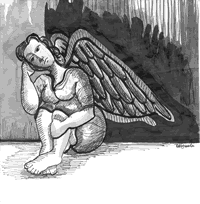|
COLONIALIDAD
DEL PODER,
GLOBALIZACIÓN Y DEMOCRACIA
Aníbal Quijano
 Desde
1492 se inicia la recíproca formación de América
y de Europa como las primeras identidades históricas de
un nuevo patrón de poder mundial, cuya culminación
se denomina hoy globalización. Dicho patrón de poder
fue constituido sobre dos ejes centrales: de un lado, la clasificación
social básica y universal de la población mundial
en torno de la idea de «raza», como el nuevo sistema
de dominación social; del otro lado, la articulación
de todas las formas conocidas de control y de explotación
del trabajo, en torno del capital y del mercado mundial. Tales
ejes son, por su origen y por su carácter, elementos de
colonialidad en el actual patrón de poder mundial. El texto
presenta las líneas mayores de una indagación en
curso sobre las implicaciones de dicha colonialidad del poder. Desde
1492 se inicia la recíproca formación de América
y de Europa como las primeras identidades históricas de
un nuevo patrón de poder mundial, cuya culminación
se denomina hoy globalización. Dicho patrón de poder
fue constituido sobre dos ejes centrales: de un lado, la clasificación
social básica y universal de la población mundial
en torno de la idea de «raza», como el nuevo sistema
de dominación social; del otro lado, la articulación
de todas las formas conocidas de control y de explotación
del trabajo, en torno del capital y del mercado mundial. Tales
ejes son, por su origen y por su carácter, elementos de
colonialidad en el actual patrón de poder mundial. El texto
presenta las líneas mayores de una indagación en
curso sobre las implicaciones de dicha colonialidad del poder.
COLONIALITY
OF POWER,
GLOBALIZATION AND DEMOCRACY
Anibal Quijano
1492
marked the start of a reciprocal building of America and Europe
as the first historical entities in the new pattern of world power,
which eventually culminated in what we know as Globalization.
This power pattern was built on two central axes: on one side,
the basic, universal social classification of the world’s
population around the notion of “race”, as the new social
domination system; and on the other side, the articulaton of all
the known forms of control and labor exploitation, pivoting on
capital and world markets. Such axes are, by origin and characteristics,
elements of the coloniality of the current pattern of world power.
This paper addresses the major lines of ongoing research into
the implications of such coloniality of power.
|